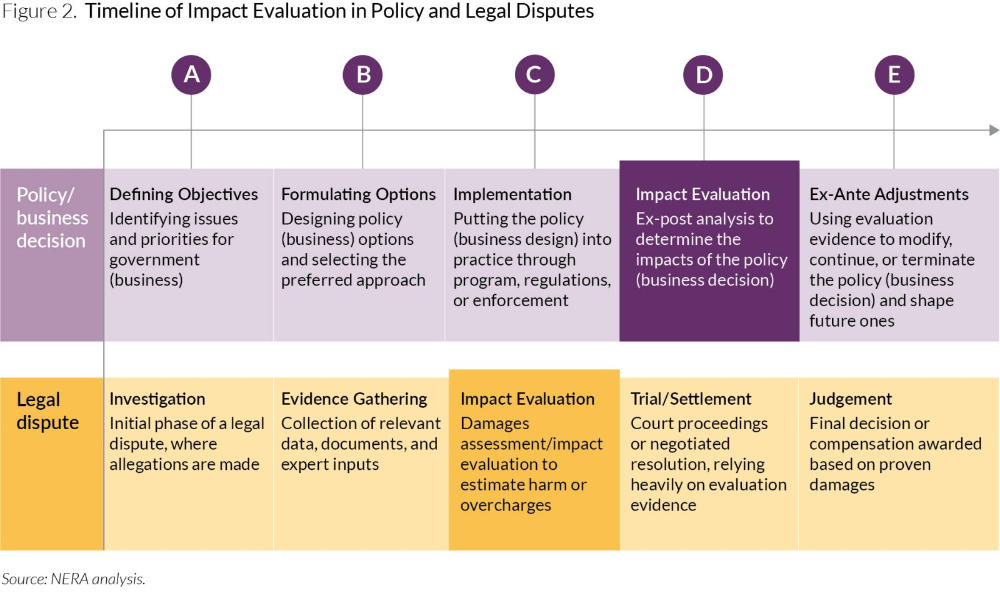- within Litigation and Mediation & Arbitration topic(s)
- in Asia
- within Litigation and Mediation & Arbitration topic(s)
- within Litigation, Mediation & Arbitration, Technology and International Law topic(s)
- in Asia
- with readers working within the Banking & Credit industries
Determining the impacts of actions, investments, and policies is increasingly important for policymakers, lawyers, and businesses. Impact evaluation compares what has happened in the real world with what would have happened in a hypothetical (counterfactual) world in which the action, investment, or policy had not occurred. The difference in outcomes (e.g., GDP or profits) between these two worlds is attributed to the action, investment, or policy.
Conducting a proper impact evaluation helps governments shape smarter policies, provides courts with a basis for measuring damages in cases such as anticompetitive conduct or contract infringement and enables businesses (e.g., technology companies) to understand how users respond to new features, products, and price changes.
The importance of evaluation is evident in its use in legal, policy, and business settings, with lawyers and policymakers using the same toolbox of evaluation methods—sometimes without even realizing it.
Carrying out such evaluations is inherently challenging. It requires selecting and using appropriate methods, navigating complex data environments, working independently, and a clearly and simply explaining complex issues.
In this white paper, NERA Senior Managing Director Daniel Hanson, Affiliated Consultant Francis Ostermeijer, Consultant Kajal Kumar, and Economic Analyst Margot Cintract explore the importance of evaluation, provide an overview of core techniques for credible impact evaluation, offer guidance on choosing appropriate methods, and identify common pitfalls to avoid. Through a stylized example with contrasting conclusions, they illustrate how the choice of technique can significantly influence results and decisions.

To download publication, please click here.
The content of this article is intended to provide a general guide to the subject matter. Specialist advice should be sought about your specific circumstances.



